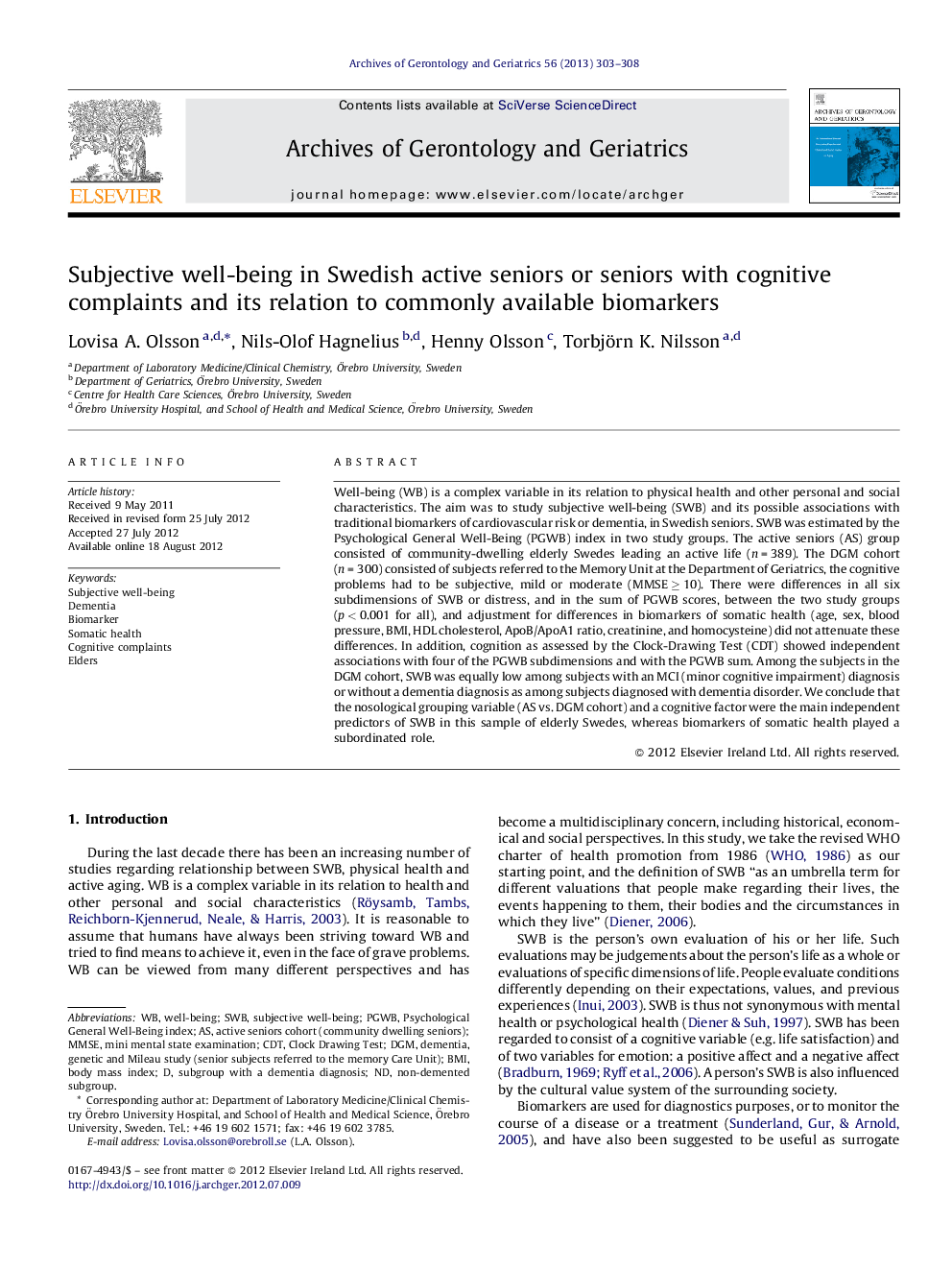| Article ID | Journal | Published Year | Pages | File Type |
|---|---|---|---|---|
| 1902826 | Archives of Gerontology and Geriatrics | 2013 | 6 Pages |
Well-being (WB) is a complex variable in its relation to physical health and other personal and social characteristics. The aim was to study subjective well-being (SWB) and its possible associations with traditional biomarkers of cardiovascular risk or dementia, in Swedish seniors. SWB was estimated by the Psychological General Well-Being (PGWB) index in two study groups. The active seniors (AS) group consisted of community-dwelling elderly Swedes leading an active life (n = 389). The DGM cohort (n = 300) consisted of subjects referred to the Memory Unit at the Department of Geriatrics, the cognitive problems had to be subjective, mild or moderate (MMSE ≥ 10). There were differences in all six subdimensions of SWB or distress, and in the sum of PGWB scores, between the two study groups (p < 0.001 for all), and adjustment for differences in biomarkers of somatic health (age, sex, blood pressure, BMI, HDL cholesterol, ApoB/ApoA1 ratio, creatinine, and homocysteine) did not attenuate these differences. In addition, cognition as assessed by the Clock-Drawing Test (CDT) showed independent associations with four of the PGWB subdimensions and with the PGWB sum. Among the subjects in the DGM cohort, SWB was equally low among subjects with an MCI (minor cognitive impairment) diagnosis or without a dementia diagnosis as among subjects diagnosed with dementia disorder. We conclude that the nosological grouping variable (AS vs. DGM cohort) and a cognitive factor were the main independent predictors of SWB in this sample of elderly Swedes, whereas biomarkers of somatic health played a subordinated role.
